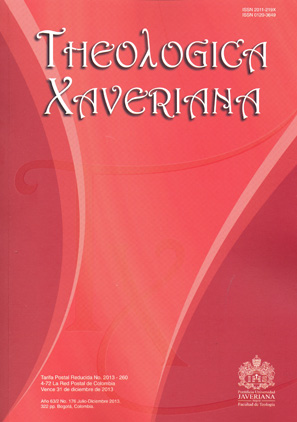Abstract
The need for a “New Evangelization” is a topic of outermost importance given the challenge of keeping the spirit and relevance of the message of the Gospel. The origin of this expression lies in a speech given by Pope John Paul II. Nevertheless, the concept of “New Evangelization” has already appeared at the Conference in
Medellín to express the need to carry out the renovation proposed by the Second Vatican Council. Additionally, the most faithful translation for the evangelic demand of a new evangelization is the term “pastoral conversion”, coined at the Conference in Santo Domingo and retaken at the Conference in Aparecida.
This journal is registered under a Creative Commons Attribution 4.0 International Public License. Thus, this work may be reproduced, distributed, and publicly shared in digital format, as long as the names of the authors and Pontificia Universidad Javeriana are acknowledged. Others are allowed to quote, adapt, transform, auto-archive, republish, and create based on this material, for any purpose (even commercial ones), provided the authorship is duly acknowledged, a link to the original work is provided, and it is specified if changes have been made. Pontificia Universidad Javeriana does not hold the rights of published works and the authors are solely responsible for the contents of their works; they keep the moral, intellectual, privacy, and publicity rights.
Approving the intervention of the work (review, copy-editing, translation, layout) and the following outreach, are granted through an use license and not through an assignment of rights. This means the journal and Pontificia Universidad Javeriana cannot be held responsible for any ethical malpractice by the authors. As a consequence of the protection granted by the use license, the journal is not required to publish recantations or modify information already published, unless the errata stems from the editorial management process. Publishing contents in this journal does not generate royalties for contributors.


